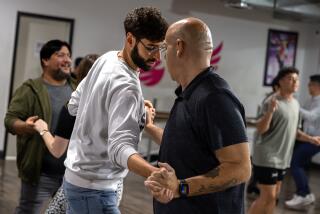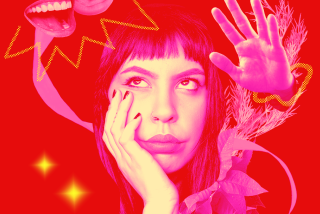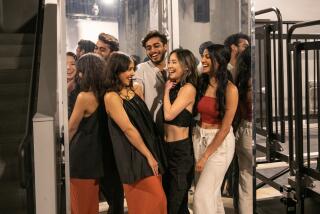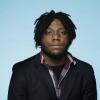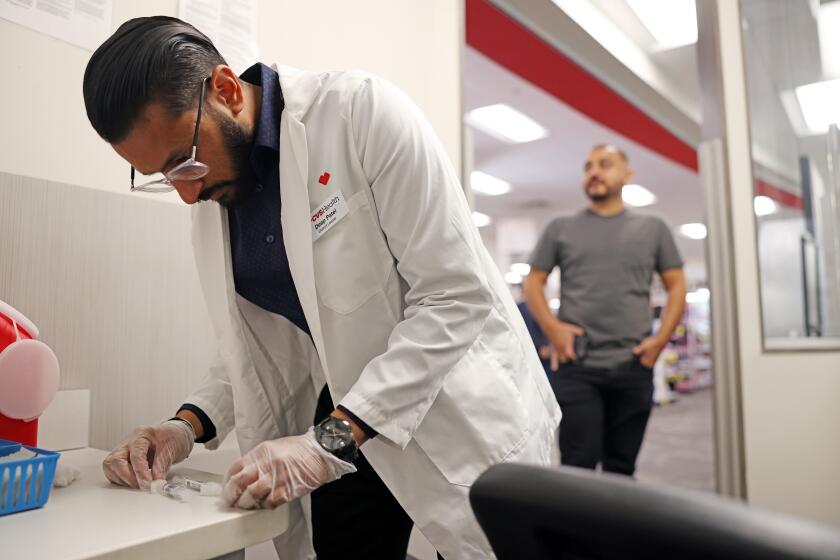When coronavirus makes human contact scary, it’s tough to teach tango
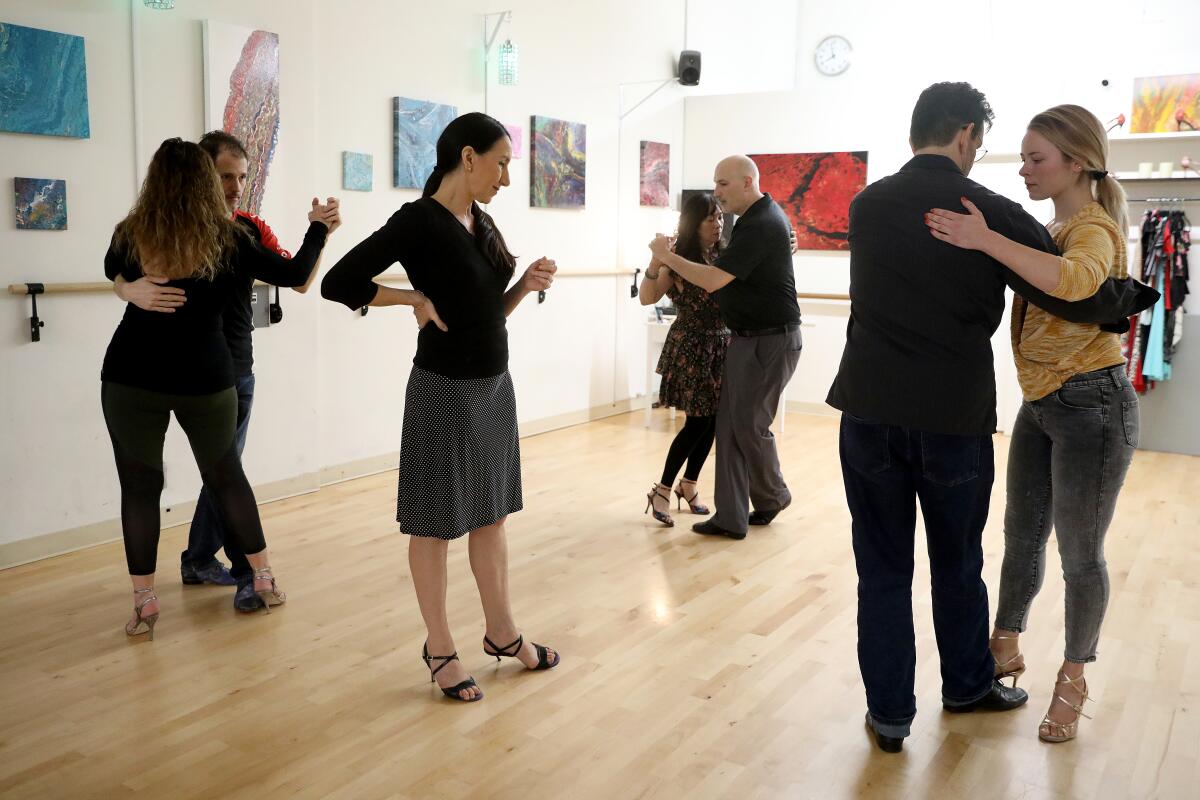
Before Ilona Glinarsky began her Argentine tango dance class at the Hermosa Beach Community Center on Wednesday, she pulled the hand sanitizer from her purse.
“I come bearing a gift,” the instructor said.
One by one, the dance students took a pump. Then it was time to practice.
It’s impossible to tango without physical embrace. But dance instructors and others whose businesses rely on human-to-human contact are being forced to adjust their methods amid fears of the novel coronavirus, which has killed thousands worldwide and at least 39 in the United States.
Makeup artists, masseuses and more are now grappling with how to sustain their livelihoods at a time of social distancing.
Like other big public events, many large tango gatherings in Los Angeles have been canceled, causing a sizable economic hit on the organizers. That includes Glinarsky’s annual May tango marathon. She has also suspended large classes, choosing only to take private students she trusts. And even then she asks questions, such as “Are you sick?” and “Where have you traveled?”
“It’s what we love to do, but it is also literally right now is the most dangerous kind of contact you can have,” she said. “It’s not even about washing hands because you are face-to-face with a person, breathing into almost each other’s ear.”
Tango normally involves interlocking hands, faces close together and the swapping of dance partners throughout the night. It’s also popular among older people, who are among the most vulnerable to the disease. Glinarsky said people can tango well into their 80s. That’s making her even more cautious.
Beginning tango students normally practice in an asymmetrical embrace, with their hands touching a partner’s elbows and biceps. Glinarsky said she is more comfortable teaching from that stance, and is making students use it as well. It minimizes contact between partners, which she hopes will decrease the potential spread of the virus.
When the coronavirus outbreak started making headlines, Makela Brizuela, who has taught tango for 20 years, made sure everyone who entered her studio in Culver City washed their hands.
On Thursday, as school districts and theme parks announced their closure, Brizuela canceled all group and private lessons. Some of her students said they would continue to pay their membership fees, even if they won’t have classes for the foreseeable future. She’s thinking about holding virtual sessions for them, and has also created a fundraising page.
Massage therapists feel the effect of the virus, too. Larisa Goldin, chief executive of Dreamclinic, said her company has seen an approximately 20% drop in appointments. Some cancellations have come from people with weaker immune systems. Others are customers with a more vulnerable person close to them, she said.
Dreamclinic is based in Seattle, one of the hardest-hit areas with the virus in the country. The company also does business in the Los Angeles area: mainly in-office massages for corporate clients, including Boeing, which has a facility in El Segundo. The shift to telecommuting has dented Dreamclinic’s normal bookings.
Goldin said her therapists always thoroughly disinfect their stations, but now her company is redoubling its sanitation practices, even having clients there to see them do it.
“L.A. is great area to work in because there’s a lot of people that believe in taking care of themselves and they really believe in the stress-relief benefits of massage,” Goldin said. “We see a lot of long-term growth there. But right now, everybody’s a little bit panicked.”
Makeup artists are scrambling, too. Beauty-care chain Sephora has suspended paid and free in-store services, and has offered clients online instructions on certain makeup application techniques. It is also offering paid time off to employees if they become sick.
Nisha Vig, owner of NV Makeup Art, has seen a drop in appointments since the coronavirus outbreak reached the United States.
Canceled or postponed concerts and festivals such as Coachella negated a large source of future income. People seek out her service before those events — and afterward, too, for parties, said Vig, who is based near Riverside.
Vanessa Broin, a self-employed makeup artist, started offering a $20 discount on all services through March in hopes of stirring up more business during what was already the slow season.
“Makeup is a luxury service, and it’s not as important as a lot of other things, so I am concerned,” she said.
Even palm readers are changing their workflows. Doreen Lee of Glendale, a psychic for 25 years, says her palm reading technique varies from time to time. Sometimes she touches clients’ palms. Sometimes she doesn’t. Because of the coronavirus, she’s now always choosing the second option.
“You don’t really have to have hand-to-hand contact for a palm reading,” Lee said. “You honestly just have to look at them. But of course now with the coronavirus, I’m just looking at them.”
More to Read
Inside the business of entertainment
The Wide Shot brings you news, analysis and insights on everything from streaming wars to production — and what it all means for the future.
You may occasionally receive promotional content from the Los Angeles Times.
